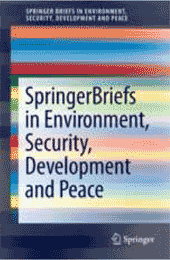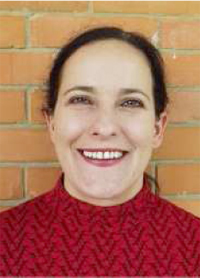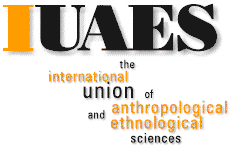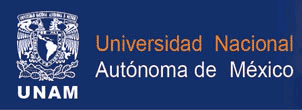

SpringerBriefs in
Environment, Security, Development and Peace (ESDP)
A Peer-reviewed Book Series
Edited by
Hans Günter Brauch
Free University of Berlin and AFES-PRESS
 |
Lourdes Arizpe Schlosser, Cristina Amescua: Anthropological Perspectives on Intangible Cultural Heritage. SpringerBriefs in Environment, Security, Development and Peace, vol. 6 (Heidelberg – New York – Dordrecht – London: Springer-Verlag, 2013).
ISBN (Print): 978-3-642-
ISBN (Online/eBook): 978-3-642-
DOI: 10.1007/978-3-642
Order Form
Order this book on the Springer Website
Order electronic version and individual chapters
|
Authors
|
Book Announcements and Book Reviews |
| |
|
On this Book |
A decade after the approval of the UNESCO 2003 Convention for the Safeguarding of Intangible Cultural Heritage (ICH), the concept has gained wide acceptance at local, national and international levels. Communities are recognizing and celebrating their Intangible Heritage; governments are devoting important efforts to the construction of national inventories; anthropologists and professionals from different disciplines are building a new field of study. The ten chapters of this book include the peer-reviewed papers of the First Planning Meeting of the International Social Science Council’s Commission on Research on ICH held at the Centro Regional de Investigaciones Multidisciplinarias (UNAM) in Cuernavaca, Mexico in 2012. The papers are based on fieldwork and direct involvement in assessing and reconceptualizing the outcomes of the UNESCO Convention. The report in Annexe 1 highlights the main points raised during the sessions.
Main selling points:
The first book to bring together different anthropological approaches to research on intangible cultural heritage
- All contributing authors are anthropologists who are involved in policy-making related to intangible cultural heritage
- Chapters are based on fieldwork and/or expertise in different regions of the world.
Contents Level » Research
Keywords Anthropology, Intangible Cultural Heritage, Culture, Cultural Policy, Cultural Transmission
Contents: Introduction - Between Arbitration and Engineering: Concepts and Contingencies in the Shaping of Heritage Regimes - Singularity and Micro Regional Strategies in Intangible Cultural Heritage - Beyond Tradition: Cultural Mediation in the Safeguarding of Intangible Cultural Heritage - Brief Evaluation of Items on Intangible Cultural Heritage - Challenges for Anthropological Research on Intangible Cultural Heritage - New Directions in the Study of Cultural Transmission - Thoughts on Intangibility and Transmission - Intangible Cultural Heritage Policy in Japan - Anthropology of Intangible Cultural Heritage and Migration: an Uncharted Field - Annex: General Discussion Identifying Key Issues
Biography of the Authors
|
 |
Lourdes Arizpe, is a professor at the Regional Center for Multidisciplinary Research of the National University of Mexico, received an M.A. at the National School of History and Anthropology in Mexico in 1970 and a PhD. in anthropology of the London School of Economics and Political Science, U.K. in 1975. She pioneered anthropological studies on migration, gender, rural development, global change and culture in Mexico, Latin America and in international research groups, both academic and policy-oriented.
Professor Arizpe taught at Rutgers University through a Fulbright grant in 1979 and carried out research in India and Senegal with a John F. Guggenheim grant in 1981. She was director of the National Museum of Popular Cultures in Mexico 1985-1988. She was elected President of the National Association of Ethnologists of Mexico in 1986 and Secretary to the Mexican Science Academy in 1992. Professor Arizpe was Director of the Institute of Anthropological Studies at the National University of Mexico and was elected President of the International Union of Anthropological and Ethnological Sciences in 1988 and successfully organized its World Congress in Mexico in 1993. Lourdes Arizpe became a member of the United Nations Commission on Culture and Development, and soon after was designated Assistant Director General for Culture at UNESCO 1994-98. She was elected President of the International Social Science Council 2004-2008 and participated as a member of the Academic Faculty of the Global Economic Forum at Davos, Switzerland 2000-2004. At the United Nations Institute for Research on Social Development she was Chair of the Board 2005-2011 and a member of the Committee for Development Policy of the Economic and Social Council. She is a member of the Board of Trustees of the Library of Alexandria in Egypt. She became an Honorary Member of the Royal Anthropological Institute of the UK in 1995, received the Order of “Palmes Academiques” from France in 2007, the Award for Academic Merit of the Universidad Veracruzana in Mexico and an Honorary Doctorate from the University of Florida at Gainesville in 2010.
|
| |
|
| Cristina Amescua, holds a PhD in Social Anthropology from the National Autonomous University of Mexico, and is a member of the faculty of the National University of Mexico’s Regional Center for Multidisciplinary Research as a professor and researcher. In recent years she has been conducting research in the following fields: Migration and Culture; Intangible Cultural Heritage; Anthropology of Violence; Migration and Climate Change. She serves as Executive Director for the UNESCO Chair on Intangible Heritage and Cultural Diversity and as Secretary of the IUAES/ISSC Commission for Research on Intangible Cultural Heritage. She has published over 10 chapters in books, and is currently coediting the collective books Intangible Cultural Heritage: Safeguarding Experiences and Politics in Movement: State, Culture, Citizenship and Exile. Some of her publications include Culture and Migration. Intangible Cultural heritage en contact zones: a struggle for authenticity or an option for conviviality (UIA, 2010) and Regional Analysis of Proclamations of Masterpieces of Oral and Intangible Heritage of Humanity (CRIM-UNAM, 2011). She also collaborated with UNESCO’s World Report: Investing in Cultural Diversity and Intercultural Dialogue (2009). |
 |
| |
|


Commission on Intangible Cultural Heritage
In the past fifteen years, the convergence of anthropological interest in rapid cultural change and traditions and the concern of social agents about the loss and transformation of living cultural heritage have led to very valuable outcomes. In the 1966 Report of the United Nations Commission on Culture and Development “Our Creative Diversity”, in which many anthropologists were involved, including Chie Nakane, Marshall Sahlins and Lourdes Arizpe – who was head of the Secretariat for the Commission --, anthropological research was the basis for proposing a set of international development guidelines regarding indigenous cultures, cultural pluralism and preservation of cultural heritage.
At present, the organizing bodies and the NGO network of the 2003 International Convention of Intangible Cultural Heritage have been actively consolidating the normative and organizational aspects in several meetings held in Paris and Abu Dhabi. However, the theoretical and methodological aspects of defining, registering and systematizing research in this field have not advanced at the same pace. Therefore, at the recent General Assembly of the State Parties to the 2003 Convention, held in June 2010 in Unesco (Paris), the normative documents of the Convention were amended, calling for closer collaboration with the scientific research community on intangible cultural heritage.
The IUAES-ISSC Commission on Intangible Cultural Heritage is aimed at providing the scientific and intellectual arena for anthropologists and ethnologists who have the fieldwork knowledge and analytical tools on living cultural heritage to give in-depth analysis of cultural groups in very diverse geographic regions.
Chairperson: Prof. Lourdes Arizpe - National Autonomous University of Mexico
Vice-Chairs: Prof. Kristin Kuutma -University of Estonia – Prof. Antonio Arantes - University of Campinas (Brazil)
Secretary: Prof. Cristina Amescua - National Autonomous University of Mexico
Website: <http://www.iuaes.org/comm/heritage.html>.

Centro Regional de Investigaciones Multidisciplinarias
The Regional Center for Multidisciplinary Research (CRIM) is an academic institution ascribed to the Coordination of Humanities at the National Autonomous University of Mexico (UNAM). It is located in the City of Cuernavaca inside the Morelos Campus of UNAM. Its objectives are:
-
Focus on multidisciplinary research in social sciences, humanities and other disciplines, mostly aimed at tackling specific problems at the local, regional, national and international levels, and their implications within globalization processes.
-
Contribute to the creation of knowledge in relevant and innovative arenas addressing social problems that require the convergence of different disciplines for their study.
-
Contribute to the development of a multidisciplinary approach to humanities, and focus on the development of innovative theoretical and methodological perspectives.
-
Participate in education programs so as to contribute to the academic training of professionals in social sciences, humanities and other disciplines.
-
Disseminate by all possible means the results of CRIM’s research projects
Website: <http://www.crim.unam.mx>.

Universidad Nacional Autonoma de Mexico (UNAM)
The National Autonomous University of Mexico (UNAM) was founded on September 21st, 1551 under the name Royal and Pontifical University of Mexico. It is the biggest and most important university in Mexico and Ibero-America.
As part of the Centennial Celebrations of Mexican Independence, the National University was officially created on September 22, 1919. With the intention of widening educational opportunities in the country, the effort to launch the National University, though often hampered by adversity, was initially spearheaded by Congressman Justo Sierra in 1881. His vision finally materialized in 1910 with the inauguration of the National University of Mexico at a ceremony held in the National Preparatory School Amphitheatre, where as Secretary of Public Instruction, Sierra told the audience that the thrust of the National University’s educational project was to concentrate, systematize and disseminate knowledge in order to prepare the Mexican people for the future. One-hundred years after the creation of the University, Justo Sierra’s inaugural address still rings true: (…) we are telling the university community today that truth is unfolding: go seek it (…) you have been charged with the realization of a political and social ideal which can be summed up thus: democracy and liberty.
The fundamental aim of the UNAM is to serve both the country and humanity, train professionals, organize and carry out research, mainly on national problems and conditions, and offer cultural benefits in the broadest sense possible.
Website: <http://www.unam.mx>
Books by Lourdes Arizpe Schlosser to be published by Springer:
-
Lourdes Arizpe Schlosser: Lourdes Arizpe Schlosser: A Mexican Pioneer in Anthropology. Springer Briefs on Pioneers in Science and Practice No. 10 – presented by Margarita Velázquez Gutiérrez (Heidelberg – New York – Dordrecht – London: Springer-Verlag, 2013).
-
Lourdes Arizpe Schlosser: Migration, Women and Social Development: Key Issues. Springer Briefs on Pioneers in Science and Practice No. 11. Subseries Texts and Protocols No. 5 (Heidelberg – New York – Dordrecht – London: Springer-Verlag, 2014).
-
Lourdes Arizpe Schlosser: Culture, Diversity and Heritage: Major Studies. Springer Briefs on Pioneers in Science and Practice No. 12. Subseries Texts and Protocols No. 6 (Heidelberg – New York – Dordrecht – London: Springer-Verlag, 2014).
-
Lourdes Arizpe Schlosser: Beyond Culture: Conviviability and the Sustainable Transition. SpringerBriefs in Environment, Security, Development and Peace, vol. 9 (Heidelberg – New York – Dordrecht – London: Springer-Verlag, 2014).